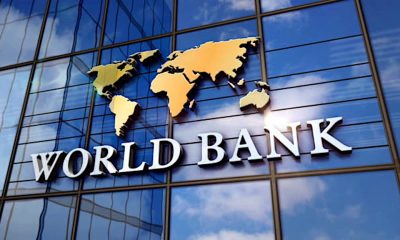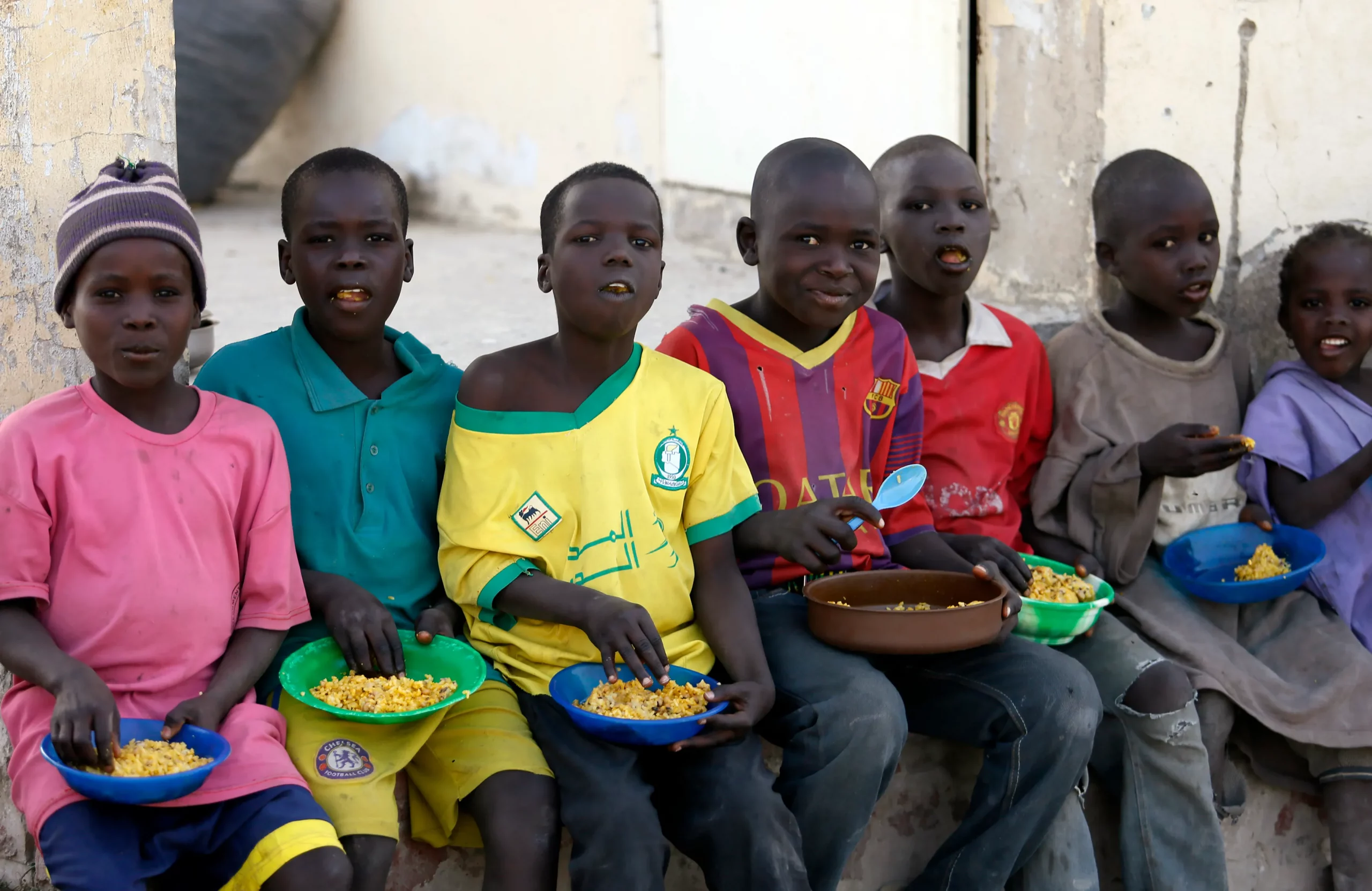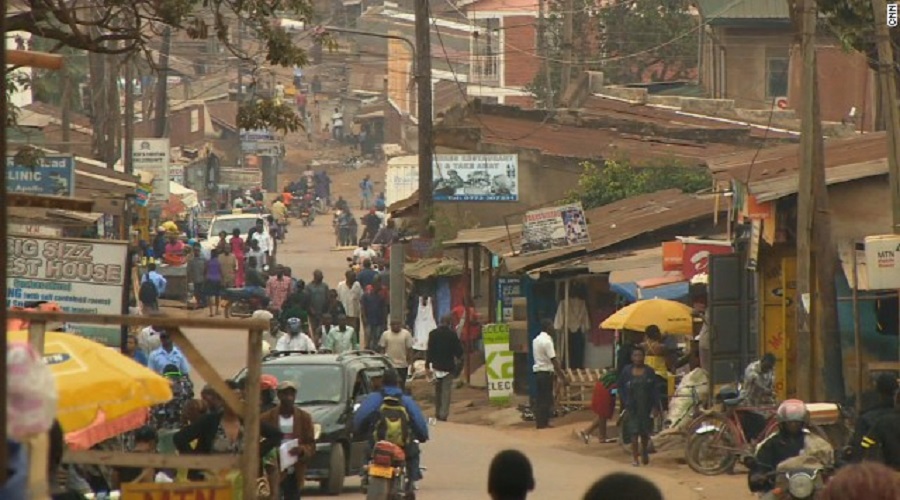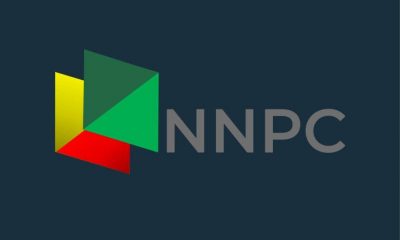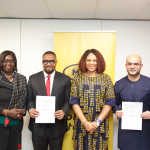General
World Bank Disburses N35.3bn to 36 States for NG-CARES
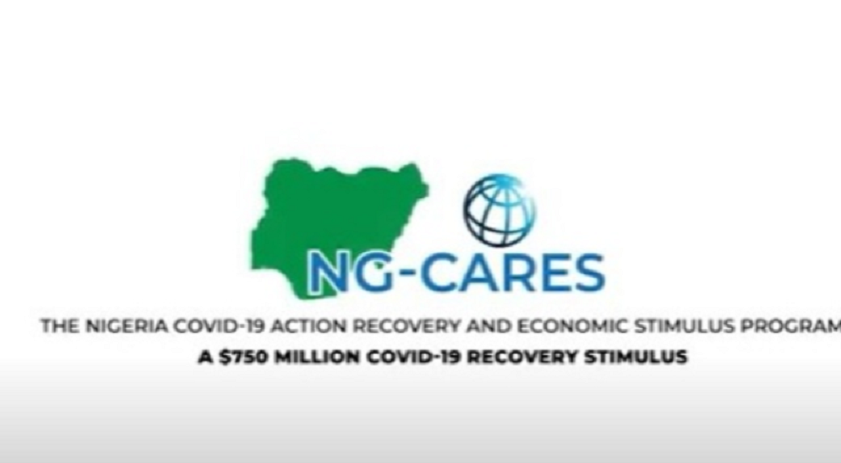
By Adedapo Adesanya
The World Bank said it has disbursed the sum of N35.3 billion to all the 36 states of the federation and the FCT as an advance payment for the implementation of the Nigeria COVID-19 Action Recovery and Economic Stimulus Programme (NG-CARES).
This disclosure was made by the Lead Specialist, World Bank Country Office, Abuja, Mr Foluso Okunmadewa at the 1st Implementation Support Mission for NG-CARES on Tuesday in Ikeja, Lagos.
He said that the programme was organised for the World Bank, the federal government and state delegates who would be participating in the implementation of the programme with Lagos as the host state.
Mr Okunmadewa, also the Task Team Leader, NG-CARES, World Bank, Abuja, said that all the 36 states were running the programme and had become effective in every state.
He added that the World Bank’s teams were in Lagos, Enugu, Yola, Birnin-Kebbi, adding that all the 36 states are participating in the implementation mission this week.
He added that the team had started going round all the 36 states for this particular mission to help them as they start the implementation process.
NG-CARES is a $750 million intervention programme that started running in 2021 and would end in 2023.
It is a collaboration between the World Bank, the Federal Government and the 36 state governments.
According to him, the total allocation to each state of the federation is the equivalent of $20 million but it is result-based financing, so the money is not given to the state upfront.
“But because most states do not have enough resources to start the intervention, advance money was given to the states.
“Advance were given to the states at a different amount ranging from $500 million to $1.3 billion in some cases.
“A total of N35.3 billion has been disbursed as of yesterday (Monday) to all the 36 states of the federation and the FCT as advance.
“It is hoped that by the next six months when the World Bank must have verified the results from the states, the second disbursement will take place and the advance will be recovered.
“Lagos state is among the best, It got N900 million,” he said.
Mr Okunmadewa said that NG-CARES was set up to alleviate the impacts of COVID-19 on livelihood, welfare, food supply system, the informal sector and the local economy.
He noted that due to the pandemic, many people became poor while others became poorer.
“It’s true that when COVID-19 pandemic was rampant, people recognised its immediate impact on their lives and also recognised that it was affecting livelihood.
“Even now that the effects on lives, sickness and all other things may have subsided, the impacts it had to have on livelihood, on the level of welfare of people, on food and supply system, impact on the informal sector, local economy, are still there.
“Those impacts need to be alleviated in a way.
“People who were poor before COVID-19 became poorer, people who were not poor before the pandemic became poor. Now there is no doubt that they needed to be supported,” he noted.
The team leader said that the World Bank had adopted a performance-based-financing approach that would ensure that the support gets to the average Nigerians who are really in need of the intervention.
He noted that unless and until the government itself works with the people that really need this assistance and provides them with the assistance upfront; the outcome and the output are verified, the refinancing from the World Bank would not come.
“The finances follow the results, it does not follow the activities, it does not follow training and capacity building.
“It actually follows the number of farmers that have been assisted, the number of poor households that have been given social transfers, the number of local enterprises, micro and small scales that have been facilitated and recovered.
“Based on that, the government is now giving the resources, it is result-based financing and on that bases, the monitoring is implicit and I must say that all the 36 state governments of Nigeria, including the FCT, have bought into this approach.
He said that it was left for the states to actually decide the beneficiaries of the intervention, adding that it is not decided by the World Bank or any federal institutions.
“Each state looks at the poor amongst their people, the people who actually need the assistance and they are the ones they give it to.
“There is no way to circumvent it more so that independent verification agents are then going to go out, third party monitoring is going to talk to the beneficiaries who received it.
“The state government knows that if they give it out to those that do not need it, and verification and monitoring agents say so, the state will not receive the resources for it,” he said.
On the part of the host state, the Lagos State Commissioner for Budget and Physical Planning, Mr Sam Egube, said that the state was participating in all interventions that suit it and that would alleviate the impact of the COVID-19 pandemic on its citizenry.
He noted that the total budget is about 20 million dollars per state and the FCT and a total of 750 million dollars nationwide.
He said the introduction of the NG-CARES by the Federal Government and an initiative that had been supported by the World Bank to mitigate the effect of the COVID-19 pandemic was a welcome development.
He added that the state government had put in place the necessary machinery that would ensure smooth implementation of the intervention in accordance with the dictate of the operational manual.
“As a demonstration of our commitment, Mr Governor has approved the deployment of existing platforms and MDAs with good track records to deliver on the programmes’ result areas and the disbursement link indicators.
“They are: the Ministry of Women Affairs and Poverty Alleviation, the Ministry of Wealth Creation, Office of the Sustainable Development Goals and they are to handle cash transfer, basic services and livelihood supports.
“FADAMA project in the Ministry of Agriculture will work on food security and safe functioning of food supply chain while the Lagos State Employment Trust Fund will be facilitating, recovering and enhancing the capabilities of MSMEs.
Mr Egube said that the Lagos State Government had received N900 million as an advance payment for the implementation of NG-CARES as of March 7.
“Lagos will be intervening in the agricultural programme, training people in farming skills and in the management of farm business, cash transfers that will be happening and several interventions that are humanitarian in nature that will be happening.”
Also, the State Commissioner for Finance, Mr Rabiu Olowo, said that Lagos was ready for the implementation of the NG-CARES.
Mr Olowo noted that the implementation of the project was solely the responsibility of the Ministry of Budget and Economic Planning.
He added that the Ministry of Finance would facilitate the disbursements of funds for the smooth implementation of the project.
General
Pastor Ogbueli’s Abuja Night of Glory Holds Today

By Blaise Udunze
Momentum is gathering for the Abuja Night of Glory taking place today, Friday, December 5, 2025, at the main bowl of the Moshood Abiola National Stadium.
The crusade is being hosted by Dominion City Church headed by Pastor David Ogbueli and it starts by 7pm.
The all-night programme will feature dynamic worship leaders like Nathanial Bassey, Dunsin Oyekan, Theophilus Sunday, Chioma Jesus, Kaestrings, Sunmisola Agbebi Okeleye, Minister GUC, Ebuka Songs, Anthony Kani, and DC Angels.
Reputed as a teacher of righteousness and anointed minister of the gospel, evidenced by the miracles that have trailed his ministry, and one who champions the cause of the poor through empowerment initiatives, Dr. David Ogbueli will be joined by renowned ministers from within and outside Nigeria, including Evangelist Andres Bisonni, Dr. Charles Ndifon, Evangelist Dan Scott, Apostle Ikechukwu Nnajiofor, and several others.
Night of Glory has, in previous editions held across Nigeria’s cities, recorded remarkable results, such as immediate healings and freedom from chronic ailments, recovery of vision and movement after many years of paralysis, along with liberation from dependencies and emotional distress. Numerous participants have also shared testimonies of breakthroughs and big personal changes after the experience. Organisers state that this year’s event, in Abuja, is anticipated to exceed previous editions.
The event is intended for all individuals trusting God for divine intervention in any area of life.
Understanding the role of faith in the destiny of individuals and nations, a dedicated prayer session for Nigeria will take place during the crusade to tackle some of the current challenges being faced in the country and also to uplift he leaders and institutions before God.
Attendance is free, and registration is encouraged via the QR codes on event banners. Organisers expect a massive turnout as worshippers travel from across the country for what is anticipated to be a transformative encounter.
Adequate security and free transportation have been put in place ALL over the city of Abuja, while those outside Abuja are expected to join online.
General
Rivers Speaker, 15 Other Lawmakers Leave PDP for APC

By Modupe Gbadeyanka
The Speaker of the Rivers State House of Assembly, Mr Martin Amaewhule, has defected to the All Progressives Congress (APC).
At the plenary on Friday, Mr Amaewhule joined the ruling party from the opposition Peoples Democratic Party (PDP), along with 15 other members of the state parliament.
This development comes some months after they had earlier declared their support for the APC in the wake of a crisis with the state governor, Mr Sim Fubura.
The lawmakers had an issue with Mr Fubura, which led to a state of emergency declared on the oil-rich state by President Bola Tinubu in March 2025.
This embargo was only lift in September 2025 after the duration of the six-month emergency rule in the state.
A few days ago, members of the Rivers Assembly passed a vote of confidence on President Tinubu, backing him to remain in office till 2031, when he would have spent eight years in office if re-elected in 2027.
Announcing their defection today, the lawmakers pinned their decision on the crisis rocking the PDP at the national level.
It is not certain if their political godfather, Mr Nyesom Wike, who is the current Minister of the Federal Capital Territory (FCT), will join them in APC.
Mr Wike, who governed Rivers State from 2015 to 2023, has been accused of instigating the crisis in the opposition PDP. He was expelled from the party last month at a national convention held in Ibadan, Oyo State.
General
Nigeria Risks Brain Drain in Energy Sector—PENGASSAN

By Adedapo Adesanya
The Petroleum and Natural Gas Senior Staff Association of Nigeria (PENGASSAN) has warned that Nigeria risks massive brain drain in the oil and gas sector due to poor remuneration.
The president of PENGASSAN, Mr Festus Osifo, said at the end of the National Executive Council (NEC) meeting of the union on Thursday in Abuja that the industry was facing challenges arising from Naira devaluation and inflation, noting that, oil and gas skills remained globally competitive.
Painting an example, he said, “A drilling engineer in Nigeria does the same job as one in the US or Abu Dhabi,” noting that the union must take steps to bridge the wage gap to prevent members from leaving the country for better opportunities abroad.
“If we don’t act, the brain drain seen in other sectors will be child’s play,” he said.
According to him, PENGASSAN has recorded significant gains through collective bargaining across oil and gas branches.
“We signed numerous agreements across government agencies, IOCs, service and marketing sectors,” he said.
He said the agreements brought relief to members facing rising costs of living, adding that, the association’s duty is to protect members’ jobs and enhance their pay.
Mr Osifo urged companies delaying salary reviews and those foot-dragging as a result of the prevailing economic realities, to do the needful.
He said the industry employed some of the nation’s best talents, making competitive pay critical to retaining skilled workers.
“This industry recruits the best. Companies must provide the best conditions,” he said.
On insecurity, Mr Osifo urged government to take decisive action against terrorism and kidnappings across the country.
“We are tired of condemnations. government must expose sponsors and protect citizens,” he said.
He urged government at all levels to prioritise tackling insecurity through better funding and equipment for security agencies.
Mr Osifo said PENGASSAN supported calls for state police to improve local security response, adding that decentralising policing will protect citizens better than rhetoric.
He also said economic indicators meant little, if food prices remained high and farmers could not return to farms due to insecurity.
“Nigerians want to see food on the table, not macroeconomic figures,” he said, urging the government to coordinate fiscal and monetary policies to ensure economic gains reach households.
-

 Feature/OPED6 years ago
Feature/OPED6 years agoDavos was Different this year
-
Travel/Tourism9 years ago
Lagos Seals Western Lodge Hotel In Ikorodu
-

 Showbiz3 years ago
Showbiz3 years agoEstranged Lover Releases Videos of Empress Njamah Bathing
-

 Banking7 years ago
Banking7 years agoSort Codes of GTBank Branches in Nigeria
-

 Economy3 years ago
Economy3 years agoSubsidy Removal: CNG at N130 Per Litre Cheaper Than Petrol—IPMAN
-

 Banking3 years ago
Banking3 years agoFirst Bank Announces Planned Downtime
-

 Banking3 years ago
Banking3 years agoSort Codes of UBA Branches in Nigeria
-

 Sports3 years ago
Sports3 years agoHighest Paid Nigerian Footballer – How Much Do Nigerian Footballers Earn






